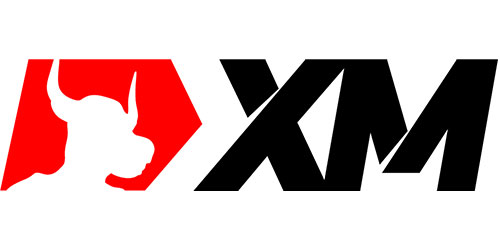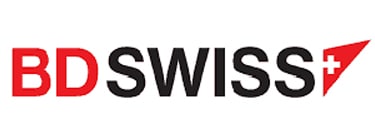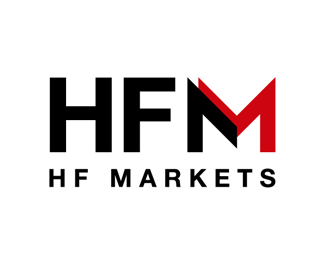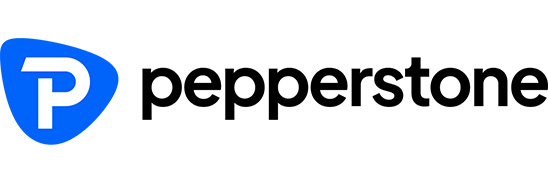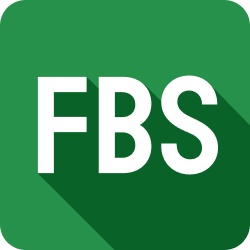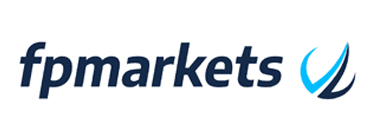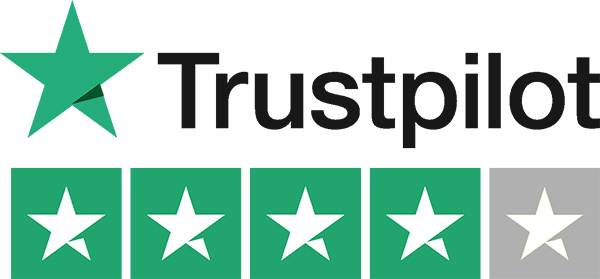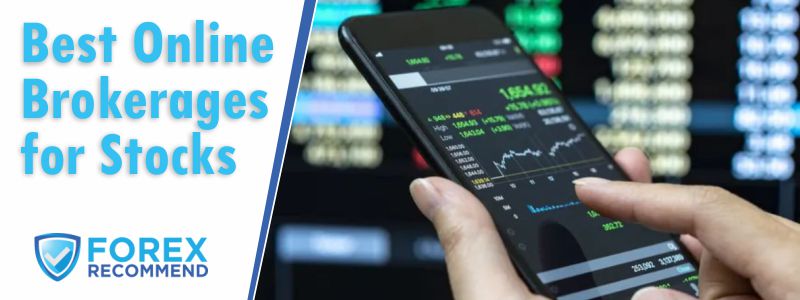
To get access to the financial markets and grow their portfolios over the short and long term, investors utilize brokerage platforms.
Investors can easily buy stocks, bonds, and other financial instruments via an online brokerage firm. There is a term for online brokers called “discount brokers” because of the significant savings they provide over full-service brokerage firms.
Full-service brokers often give financial counseling and investment suggestions, but internet brokers typically provide commission-free trading and access to a variety of additional services and products. For most investors, an online broker is the best option.
Choosing the right online broker through which to buy shares can be daunting and tedious, which is why we provide investors with a comprehensive list of the best online brokers for buying stocks in 2023, including:
- TD Ameritrade
- Charles Schwab
- Fidelity Investments
- Interactive Brokers
- Tastyworks
- E*TRADE
- Webull
- Merrill Edge
- Fidelity
- TradeStation
- Zacks Trade
- Robinhood
- SoFi
- Vanguard
Top 10 Forex Brokers Broker Rating Regulators Min Deposit Leverage Website Top 10 Forex Brokers Broker Rating Min Deposit Leverage
1. TD Ameritrade
TD Ameritrade provides a full-service brokerage experience that can meet the demands of both new investors and experienced day traders, including zero-commission transactions, top-of-the-line instructional programs, upgraded trading platforms, and a user-friendly mobile app.
In terms of simplicity of use and instructional resources, TD Ameritrade is an excellent choice for new investors. While TD Ameritrade was acquired by Charles Swab, the broker still operates as a separate entity.
TD Ameritrade does not charge an account minimum but charges $0.65 per options contract.
| PROS | CONS |
| TD Ameritrade offers a wide range of educational materials for beginner investors | There are no fractional shares offered by the broker |
| The web platform is well-designed, and the broker offers an innovative mobile trading platform | Account fees are much higher than competitors |
| There are several investment options for traders | If there is any uninvested cash, these funds are not automatically moved into a money market fund |
| The broker caters for investors of all experience levels despite their investment needs or objectives | CFD trading is not offered |
| The broker is well-regulated and is a member of the Securities Investor Protection Corporation (SIPC) | |
| There are advanced trading tools offered |
2. Charles Schwab
Charles Schwab was established in 1971, and it is a well-regulated United States-based broker and bank that offers a vast number of investment products.
Charles Schwab is one of the best investment platforms in the world.
In contrast to many other brokers, Charles Schwab's website is simple to use, and help functions are prominently displayed rather than hidden away in a nook.
Investment services and products offered by Charles Schwab include the buying and selling of stocks as well as mutual funds, options, bonds, exchange-traded funds (ETFs), and other financial instruments. Charles Schwab is one of the top US internet brokers.
The Financial Conduct Authority (FCA) has authorized and regulated Charles Schwab, U.K., Limited (Schwab UK) to offer investment services in the United Kingdom.
As a broker-dealer registered with the Securities and Exchange Commission (SEC) and a member of the Financial Industry Regulatory Authority (FINRA), Schwab is subject to oversight under US securities legislation.
Charles Schwab does not charge an account minimum or any trading commissions on stocks, ETFs, or options.
| PROS | CONS |
| The broker is a well-regulated broker that has competitive fees and an impressive offering | There is no forex, CFD, or crypto trading offered |
| The broker offers flexible trading platforms | There are limited funding options |
| There are several advanced trading tools provided | Leverage is restricted |
| There is a large selection of educational material offered | |
| There are more than 300 branches worldwide | |
| Live chat is available 24/7 |
3. Fidelity Investments
In terms of retirement planning, Fidelity has a solid reputation for providing some of the greatest information and tools available. Investors who wish to delve further into a company's financials may make use of the wealth of data and screening tools offered on the site.
That Fidelity came in second place in Investor's Business Daily's 2023 investor survey, which asked consumers who use their services, further strengthening their image.
Since Fidelity is one of the biggest brokerages in the United States, it serves a wide range of consumers, from novices to experts and those who want to take charge of their own investments.
Investing in stocks, bonds, and ETFs is easy with Fidelity's basic brokerage account, which has no fees or commissions on most transactions. Fidelity's fractional shares make it easier for new investors to get into the stock market if they do not have a lot of money to invest.
Fidelity does not charge an account minimum and its fees range from $0 to $0.65 per contract on options.
| PROS | CONS |
| There are low costs when trading with Fidelity | Futures trading is not offered |
| There are reliable trade execution speeds | The broker only serves the United States and main island residents |
| The broker offers robust research and asset screeners | There is no news streaming or data provided on the web trading platform |
| There is a wide range of educational tools offered | The fees charged with broker-assisted trades are extremely high |
| The platform is reliable and offers a range of trading tools |
4. Interactive Brokers
Because of its emphasis on minimal fees and fast transaction execution, Interactive Brokers (aka “IBKR”) has been in business since 1978.
Customers have access to 135 different markets from a single integrated account and may trade anything from stocks and options to futures, currency, bonds, and mutual funds.
Early in 2023, the firm will unveil its Impact Dashboard, which will allow you to assess investments through the prism of socially and environmentally responsible investing. With low fees, Interactive Brokers (IBKR) is a popular US brokerage. The company's stock is listed on the NASDAQ under the symbol IBKR.
For the best market pricing, Interactive Brokers employs its own proprietary SmartRouting technology. As a result, orders are filled at the most competitive rates available. Interactive Brokers does not charge an account minimum, and the fees charged are $0.005 per share on the Pro platform, or 1% of the trade value, while IBKR Lite does not attract any fees.
| PROS | CONS |
| The broker is extremely well-regulated by several reputable market regulators in the world | The native Smart Router is not offered to IBKR Lite clients |
| The broker offers powerful, innovative trading platforms across several devices | The broker and its platforms can be intimidating to beginner investors |
| There is comprehensive research and analysis offered by trusted third-party partners | There is no option for back-testing or custom trading algorithms, and auto trading is not supported |
| There are several trader tools offered | |
| There are low margin interest rates charged | |
| The broker is known for its superior order execution |
5. tastyworks
In 2017 the team behind tastytrade and thinkorswim, both of which are now owned by TD Ameritrade, launched tastyworks, an online financial network. The Chicago-based company, tastyworks, is focused on aggressive traders.
To better serve the needs of online options traders, the tastyworks brokerage platform was created exclusively for them. A subsidiary of tastytrade, one of the world's fastest-growing financial networks, is the up-and-coming online broker.
Thinkorswim creators envisioned tastyworks as a sophisticated trading platform for advanced options strategies and transactions. The tastyworks platform has an excellent user experience on both desktop and mobile platforms.
tastyworks does not charge an account minimum, and the only fees charged are on options, where investors will be subject to a charge of $1 when they open an options trade.
| PROS | CONS |
| The broker offers an extensive portfolio of educational content and resources | There is no forex trading, CFD or crypto trading |
| tastyworks offers a customizable trading experience | Limited funding options and electronic payment gateways are not supported |
| Traders have access to the ability to stream quotes in real-time across many platforms | There are restrictions on the leverage offered |
| There are advanced tools offered to options traders | The only base account currency supported is USD |
| The broker is known for its competitive fees | |
| The broker is well-regulated and offers a choice between flexible trading platforms |
6. E*TRADE
Established in 1982, E*TRADE is a US-Based bank, market maker broker, and exchange that is regulated by the Financial Industry Regulatory Authority (FINRA) and is a member of the National Futures Association (NFA) in the United States.
E*TRADE is a renowned online US Broker that provides online stock, ETF, and options trading with $0 commissions. However, there may be some fees charged by the broker, subject to the broker's terms and conditions.
Investors, traders, advisers, participants in stock plans, and administrators of stock plans may all benefit from the broker's services. Automated portfolio management tools are available for those who like to trade themselves.
Investors of all skill levels are likely to find E-Trade to be a suitable platform. Thousands of no-transaction-fee (NTF) funds, 24/7 customer care, and educational resources are all available to new investors via brokers.
E*TRADE does not charge an account minimum, and while the cost per stock trade is $0, investors will pay $0.65 per contract on options or $0.50 per contract if investors trade more than 30+ contracts every quarter.
| PROS | CONS |
| E*TRADE is known for offering over 4,400 no-load and NTF mutual funds | There are fees charged when investors transfer their funds |
| All ETFs can be traded on a commission-free basis | Investors may not purchase fractional shares |
| There is a large selection of investment options | Limited funding options offered |
| Investors have access to discounted options commissions | The account registration process is extremely slow |
| The flagship proprietary trading platform is powerful and offers advanced trading analysis | |
| The broker offers excellent customer service |
7. Webull
Webull, founded in 2017, is a New York-based online broker that enables trading on a variety of worldwide markets, including Forex, Indices, Metals, Energies, ETFs, ADRs, Initial Public Offerings, and several others.
Webull is known for offering a proprietary trading platform that is all-inclusive and comprehensive. In addition, the platform is simple to use and includes a variety of integrated, innovative, and intelligent tools and services.
Webull is a customer-centric organization led by a leadership team with extensive experience in the financial and online industries. This enables them to provide innovative trading systems and goods and services that are dependable, professional, transparent, and efficient.
Clients with varying levels of expertise are empowered via the provision of pertinent information, trading tools, competitive pricing, and round-the-clock customer care.
Webull does not charge an account minimum, and there are no commission fees charged on stock trades or options contracts.
| PROS | CONS |
| The broker is well-regulated and a member of the Securities Investor Protection Corporation (SIPC) | Limited leverage offered |
| The broker offers commission-free trading | There is a limited selection of funding options offered |
| Webull offers a wide range of different investment instruments | |
| There is a powerful and intuitive trading platform offered | |
| The broker offers comprehensive technical and fundamental analysis | |
| There are no platform fees or account maintenance fees charged |
8. Merrill Edge
Merrill Edge was launched in June 2010 and is based in the United States of America. It is provided by BofA Securities, a subsidiary of Bank of America's retail banking business.
They invest billions of dollars in client assets. Merrill Edge was formed to combine the research, investing tools, and contact centre capabilities of Bank of America Online Investing with Merrill Lynch.
Merrill Edge is a brokerage firm in the United States of America that is affiliated with Bank of America. They provide investors with a variety of investment products, platforms, tools, and instructional materials.
Along with self-directed investing, Merrill Edge's Guided Investing program provides automated portfolio management as well as fully managed advisory services with an adviser.
Merrill Edge does not have an account minimum, and while stock trades do not attract a commission, options contracts have a fee of $0.65.
| PROS | CONS |
| Merrill Edge is well regulated by FINRA in offering investment products and services | Limited countries that can register with Merrill Edge |
| There is a wide range of investment products offered | Restricted leverage offered |
| Member of the Securities Investor Protection Corporation (SIPC) | There is no CFD, forex, or crypto trading |
| There are flexible trading platforms offered | Account opening is very slow |
| There is a range of educational resources offered | |
| Managed portfolios are available |
9. Ally Invest
Established in 2016, Ally Invest is a United States-based broker and bank that provides self-directed investing as well as automated investing. Ally Invest has more than 250,000 clients and holds billions of dollars in assets.
Ally Invest is well-regulated by both the Securities and Exchange Commission (SEC) as well as the Financial Industry Regulatory Authority, or FINRA.
Ally Financial, Inc. is the parent company that has been in operation since 1911. It is also publically traded on the New York Stock Exchange (NYSE), which gives this broker a significant amount of merit.
Ally Invest does not have an account minimum, and there are no commissions charged on stocks. However, there is a fee of $0.50 charged on options per contract.
| PROS | CONS |
| Ally Invest is well-known for its universal account access | Only offers its service to United States clients in 50 states |
| The broker offers instant money transfers and offers extremely competitive rates | There are limited funding options |
| Well-regulated and backed by a prominent bank | There are limited assets offered |
| There is no minimum deposit unless traders use the margin account | The leverage offered is restricted |
| There are powerful trading platforms offered | |
| Member of the SIPC |
10. TradeStation
Designed for active and institutional traders worldwide, TradeStation is a US-based online brokerage. TradeStation is a part of Monex Group, Inc., a publicly-traded company in Tokyo and one of Japan's major suppliers of online financial services.
Although TradeStation's trading platforms are geared at more experienced investors, the GO account option on TradeStation's website allows new users to make use of many of the platform's more complex capabilities.
Stocks, bonds, options, mutual funds, futures, and cryptocurrencies are just some of the many financial instruments available via this broker. TradeStation's desktop platform is one of the most comprehensive platforms known in the industry. For the last ten years, it has been awarded our highest prize for Platform Technology.
TradeStation does not have an account minimum, and while there are no fees charged on stocks, investors will pay $0.60 per options contract.
| PROS | CONS |
| TradeStation is well-regulated by FINRA | Commission-free trading is only available to US traders |
| Member of the SIPC | Commission-free withdrawals are only offered on the web and mobile trading platforms |
| The broker offers powerful trading platforms | There is restricted leverage offered |
| There are free premium trading tools offered | There is no CFD or forex trading |
| There is a selection of educational material offered | |
| TradeStation offers a range of trading tools |
11. Zacks Trade
Established in 1978, Zacks Trade is a United States-based exchange that has a comprehensive and all-inclusive investment offering. Active traders will find Zacks Trade's versatile trading platforms, actionable research, and top-notch customer service ideal for their needs.
More than $5 billion is managed by the Zacks group of businesses. Access to innovative trading tools, research, and customer service is equal for all investors. Zacks Trade has an account minimum of $2,500 for a cash account and $2,000 for margin accounts. There are no additional fees charged for account inactivity or maintenance.
The commissions that Zacks Trade charges start from $3 on stocks and ETF trades.
| PROS | CONS |
| Zacks Trade is well-regulated and a member of the SIPC | There is a high account minimum charged |
| There are premium research tools offered | There are limited educational resources |
| There are competitive fees charged | There is restricted leverage offered |
| The broker offers flexible trading platforms. |
12. Robinhood
Robinhood Markets Inc, often referred to as Robinhood, is a financial services firm located in Menlo Park, California. The broker's website has a straightforward web-based investment platform in addition to its main mobile app, which includes access to price charts and a few more tools.
Robinhood's mobile app is lightning quick, very easy to use, and one of the best in those categories. For stock trading, Robinhood provides the essential functionality: basic watch lists, basic stock quotations with charts and analyst ratings, current news, and live Bloomberg TV streaming, in addition to easy transaction input.
Additionally, Robinhood has entered the options trading sector, which has the potential to attract some seasoned traders. As is the case with many other commission-free brokers, Robinhood does not charge a commission whether trading stocks, ETFs, options, or cryptocurrencies.
Robinhood does not have an account minimum for basic trading, but the Robinhood Gold account costs $5 per month. In addition, Robinhood does not charge any commissions on trades.
| PROS | CONS |
| Robinhood is well-regulated and is a member of the SIPC | There is no forex currency trading offered |
| The broker offers Morningstar research and Level all market data | Limited financial markets offered |
| The mobile trading app is user-friendly and comprehensive | Only offers solutions to US clients |
| Robinhood is well-suited to beginners | There are limited funding options offered |
| Fractional shares are available | |
| Publicly-traded broker with a high trust score |
13. SoFi
SoFi began as a lending and banking company dedicated to assisting individuals in refinancing high-interest debts, obtaining personal loans or mortgages, and managing their money.
Additionally, SoFi enables investors to invest in a wide range of markets, including low-risk savings products. In addition, investors can also trade automatically or manually using the app or desktop program.
SoFi's automated trading guarantees that the portfolio of investors is well-diversified and secure. Using active investing, investors can easily experiment with ETFs, bonds, and stocks without incurring any expenses.
In addition, investors can also use SoFi to stay current on financial news, build a watchlist of equities in which they want to invest, and cash out their profits when their investment has matured. Investors also have the option to transfer their funds from the trading platform directly to a SoFi bank account. SoFi does not have an account minimum.
| PROS | CONS |
| Low trading and investment costs | There are limited account types offered |
| Offers an immersive web-based and mobile experience | There is no tax-loss harvesting offered |
| Offers free account management and automatic rebalancing | |
| Investors have access to certified financial planners | |
| There is a wide range of low-cost investments offered | |
| There is dedicated and friendly customer support |
14. Vanguard
Vanguard, founded in 1975, offers online trading services to US customers via the Vanguard Brokerage Account. Among its mostly US-based financial products, investors may trade a diverse choice of mutual funds, exchange-traded funds (ETFs), stocks, options, Certificates of Deposit (CDs), and bonds.
Vanguard is a broker that is intended for investors with a longer time horizon instead of active traders or day traders. Vanguard may not have the lowest costs on stocks, options, or bonds, but they do offer certain trading-free ETFs.
They provide customers with a restricted number of trading tools and a choice of simple but user-friendly trading platforms. Because they are often focused on long-term investments and retirement plans for high-net-worth individuals, their trading infrastructure may not be as ideal for the ordinary active retail trader.
Vanguard does not have an account minimum, and there are no commissions charged on stocks or any other investment or trading fees.
| PROS | CONS |
| Vanguard is a well-established broker with low-cost investment options | There are limited funding options offered |
| There is a wide range of advanced tools offered for long-term investing and retirement savings | There is limited market research and data |
| There is a low-cost Robo-advisor provided by the broker | There is no crypto, CFD or forex trading |
| There is no minimum account opening fee charged | The platform is not suited to day traders |
| Vanguard is a well-regulated broker with a good reputation and a high trust score | |
| There is an impressive portfolio of investment options offered |
What is the best online brokerage?
The overall best online brokerage is Fidelity.
Fidelity Investments is a privately-held investment management business founded as a mutual fund company in 1946.
Due to its client-focused approach, Fidelity is the top overall brokerage available today. While other brokers are narrowing the distance, Fidelity continues to be the top recommendation for investors.
Fidelity maintains low costs, offers great tools to assist customers in managing and analyzing their portfolios, and is constantly improving its platforms to make investing and trading simpler.
What is the best online brokerage for beginners?
The best online brokerage for beginners is TD Ameritrade.
When it comes to new investor education, TD Ameritrade has a reputation for making things as easy as possible. However, TD Ameritrade provides a wide variety of goods and tools that can assist beginning investors to become more successful over the long run.
TD Ameritrade's brokerage account has several advantages, including a wide range of educational resources and the chance to practice trading on the platform without making a financial commitment.
What is the best online brokerage for low-cost trading?
Fidelity is the best online brokerage for low-cost trading.
Fidelity is the best option where cash management options are concerned, especially with idle cash. Fidelity offers excellent portfolio analysis tools in addition to some of the most affordable investment options.
What is the best online brokerage for advanced traders?
Interactive Brokers is the best online brokerage for advanced traders.
The low per-share price of Interactive Brokers, the powerful trading platform, the wide variety of tradable assets — including international equities — and the extremely low margin rates all serve to attract active traders. Commission-free stock and ETF transactions are now available via IBKR Lite, the company's newest product offering.
Is there a mobile-based online brokerage?
Yes, there are several options for mobile-based online investment through a range of reputable providers such as Robinhood, TD Ameritrade, and others.
What is the best mobile-based online brokerage?
Robinhood is the best mobile-based online brokerage.
The brokerage sector was thrown into a loop when Robinhood launched. One of its most significant advantages was that it does not charge fees for trading in the stock market, options, or cryptocurrencies.
Because of the app's and website's general simplicity, Robinhood is simple to use. To swiftly travel from screen to screen and conduct trades, the platform is sufficient for investors who know what they want.
Are mobile-based broker services easier to use than conventional services?
Yes, mobile-based broker services are extremely convenient to use. It can often be easier for investors to interact with their broker on mobile from anywhere in the world, despite whether investors are home, at work, or in transit.
Can you buy stocks without an online brokerage?
Yes, stocks can be bought without using an online brokerage.
Online brokerage accounts, dividend reinvestment plans, and direct stock purchases are all viable alternatives to full-service brokers. While there are inherent advantages involved with using a brokerage firm, it is not the only way for investors to purchase stocks.
For investors, direct stock purchase plans enable them to buy stock directly from the corporation. A transfer agent, on the other hand, is responsible for completing deals. As a result, you may purchase stocks without the assistance of a full-service or online broker.
DSPPs may be issued by publicly listed corporations; however, not all publicly traded companies have DSPPs. The minimum investment required for first and future stock purchases may be set by each firm.
DRiPs and DSPPs have a lot in common, and some DSPPs even provide DRiP applications. It is still possible for investors to acquire shares in a publicly listed firm directly, but with the DRiP, the dividends paid on that stock may be reinvested in that company, allowing for further stock purchases.
With an online brokerage account, investors can buy and sell stocks without having to deal with a conventional full-service brokerage firm or the conventional trading fees.
Investing with a broker is extremely simple, and investors can simply tell their broker which stocks they want to purchase how much they want to spend, and the broker will carry out the transaction on behalf of the investor.
Online brokers offer investors a low barrier of entry into the stock market, providing them with a wide range of investment options.
Table of Contents




